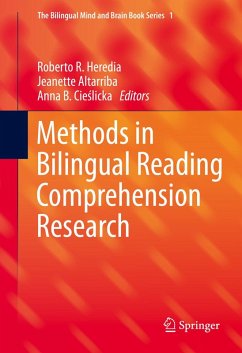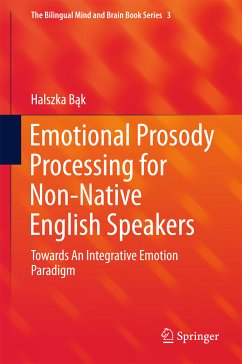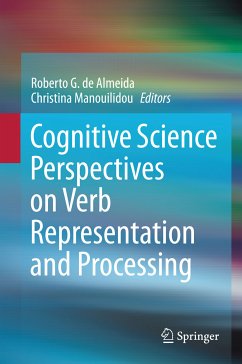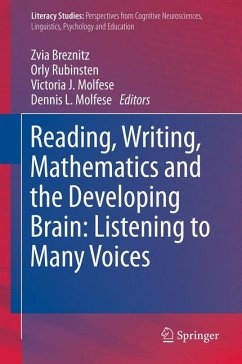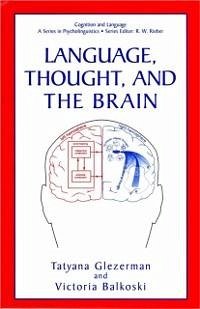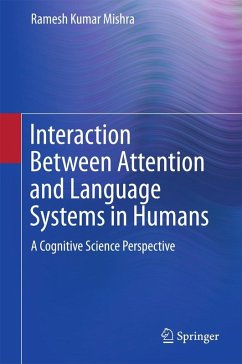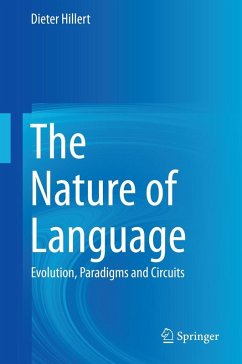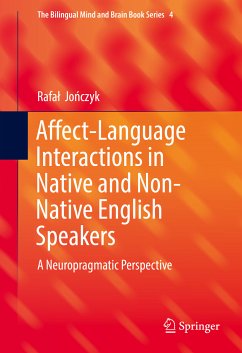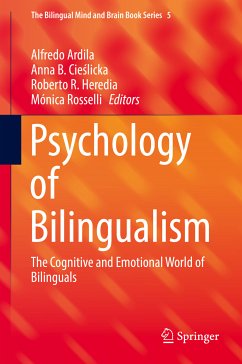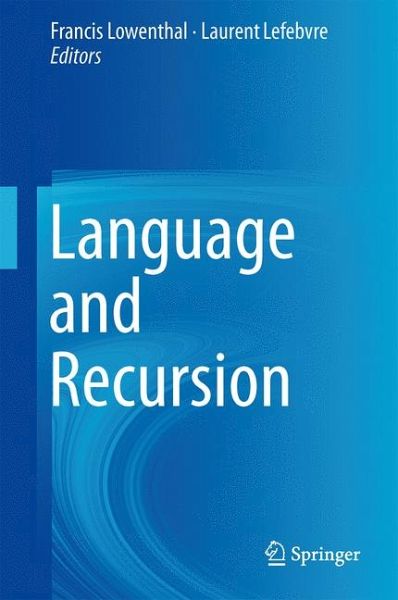
Language and Recursion (eBook, PDF)

PAYBACK Punkte
48 °P sammeln!
As humans, our many levels of language use distinguish us from the rest of the animal world. For many scholars, it is the recursive aspect of human speech that makes it truly human. But linguists continue to argue about what recursion actually is, leading to the central dilemma: is full recursion, as defined by mathematicians, really necessary for human language? Language and Recursion defines the elusive construct with the goal of furthering research into language and cognition. An up-to-date literature review surveys extensive findings based on non-verbal communication devices and neuroimagi...
As humans, our many levels of language use distinguish us from the rest of the animal world. For many scholars, it is the recursive aspect of human speech that makes it truly human. But linguists continue to argue about what recursion actually is, leading to the central dilemma: is full recursion, as defined by mathematicians, really necessary for human language? Language and Recursion defines the elusive construct with the goal of furthering research into language and cognition. An up-to-date literature review surveys extensive findings based on non-verbal communication devices and neuroimaging techniques. Comparing human and non-human primate communication, the book's contributors examine meaning in chimpanzee calls, and consider the possibility of a specific brain structure for recursion. The implications are then extended to formal grammars associated with artificial intelligence, and to the question of whether recursion is a valid concept at all. Among the topics covered: . The pragmatic origins of recursion. . Recursive cognition as a prelude to language. . Computer simulations of recursive exercises for a non-verbal communication device. . Early rule learning ability and language acquisition. . Computational language related to recursion, incursion, and fractals . Why there may be no recursion in language. Regardless of where one stands in the debate, Language and Recursion has much to offer the science community, particularly cognitive psychologists and researchers in the science of language. By presenting these multiple viewpoints, the book makes a solid case for eventual reconciliation.
Dieser Download kann aus rechtlichen Gründen nur mit Rechnungsadresse in A, B, BG, CY, CZ, D, DK, EW, E, FIN, F, GR, HR, H, IRL, I, LT, L, LR, M, NL, PL, P, R, S, SLO, SK ausgeliefert werden.




